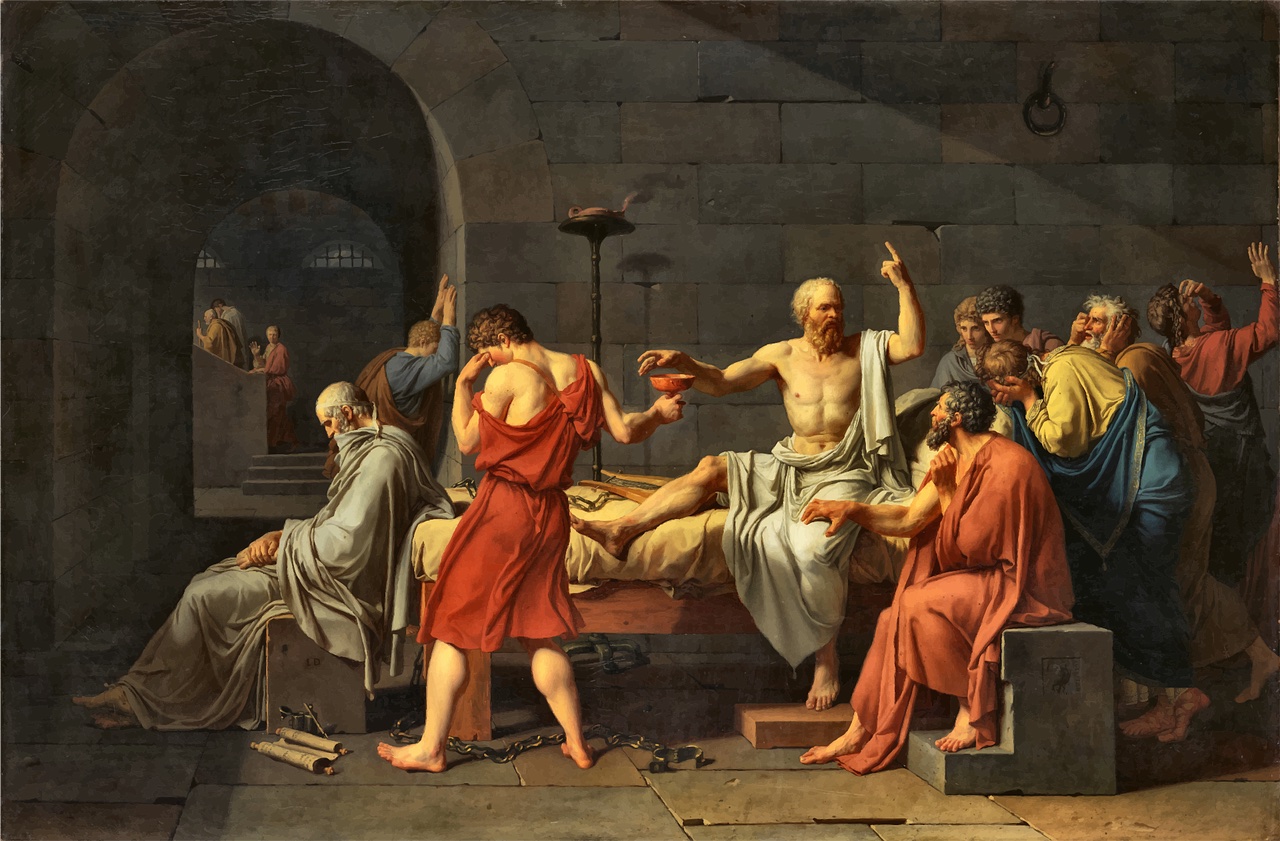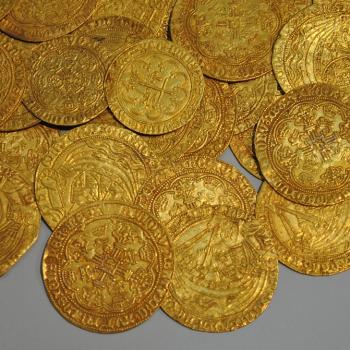
While each gospel has their own voice and audience, the gospel of John is unique for several reasons. Scholarly consensus has this gospel being written later than the Synoptics, and John chooses not to include many of the same stories found in Matthew, Mark, and Luke. Some earlier theologians believed this was because John was ‘filling in the gaps’ of the Synoptics. However, when we consider the departure from that narrative style towards a more apologetic voice, it seems unlikely. Rather, John is more interested in convincing his audience rather than completing someone else’s work.
John is written many years after the Synoptic Gospels and in the midst of the dispersion of the Jewish and Christian people after the First Jewish Revolt. Priorities shifted by the time John wrote his gospel. He wants to show that Jesus is the promised Christ, God incarnate. Jesus is superior to the good life of the Hellenistic philosophers (John 20:31).
Jesus and Socrates
In the Hellenized, Roman occupied Jerusalem, a wise man is a great speaker and debater. Socrates, one of the greatest ancient Greek philosophers, is known for the way he speaks with his opponents and the Sophists. We see Jesus using the Socratic Dialogues in a similar way, and getting similar responses.
In the first book of The Republic, Socrates is in dialogue with several Sophists about the meaning of justice. During the dialogue, he is met with multiple answers. Socrates continues the conversation, pulling out a deeper response that gets to the heart of justice. Cephalus’ answer is questioned, but no response is recorded. Polemarchus works through his answer and discovers an inconsistency. Thrasymachus pushes back against Socrates, but eventually does not give a sufficient alternative.
In a similar way, Jesus often responds to questions with more questions. In the Synoptic Gospels, Jesus may prefer a parable or miracle, but John’s Jesus is thoroughly Hellenized. And, similarly to Socrates, Jesus is met with multiple responses. Nicodemus comes to Jesus to ask him for the truth – who is he really? In John 3:1-21, Jesus answers Nicodemus with another question. Only when Nicodemus is clearly puzzled (not understanding the double entendre) does Jesus explain himself. Still, the answer is not as simple as it could be – Jesus employs high rhetoric to reply.
While Nicodemus could represent the Polemarchus character from The Republic, the Jews – as characterized by John as a whole – are clearly the professional intellectuals who cannot understand Jesus. They constantly try to trap Jesus in word puzzles and seemingly unsolvable riddles. When Jesus responds with his own questions (or talks about divinity), they become angry and try to stone him (John 8:58-59; 10:30-31).
What Now?
The Jesus in John is more than a retelling of the Synoptic Gospels or filling in the gaps. John is making serious theological moves based on what he sees as most important. Christianity was becoming increasingly less Jewish and spreading further throughout the Roman Empire. Jesus’ authority had to stretch beyond Jerusalem.
The high Christology, coupled with the Socratic discourses, ensured that Jesus would be viewed by Jew and Gentile as at least an authoritative messenger by God. John goes to great lengths to prove that Jesus was actually the Son of God – aggravating both the Jewish religious elites and the Roman emperor cult.
How then should we retell the story of Jesus in light of modernity?
 Brad is a graduate student at Northwind Theological Seminary studying theology and the changing religious landscape in America. He works as a co-investigator at the University of Rhode Island’s College of Pharmacy providing education and support for rural New Englanders impacted by the opioid epidemic. Brad spends nights and weekends playing in regional bands as a bassist, guitarist, and vocalist. When not at a computer, he loves to spend time with his wife and chasing his toddler around the house. You can go to his website to get updates on his writing and other events.
Brad is a graduate student at Northwind Theological Seminary studying theology and the changing religious landscape in America. He works as a co-investigator at the University of Rhode Island’s College of Pharmacy providing education and support for rural New Englanders impacted by the opioid epidemic. Brad spends nights and weekends playing in regional bands as a bassist, guitarist, and vocalist. When not at a computer, he loves to spend time with his wife and chasing his toddler around the house. You can go to his website to get updates on his writing and other events.













